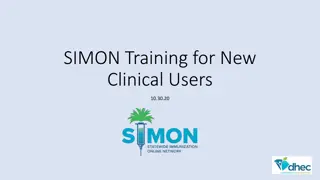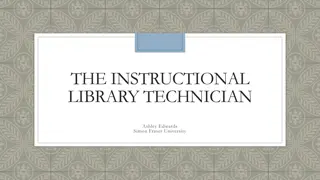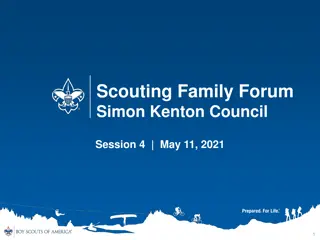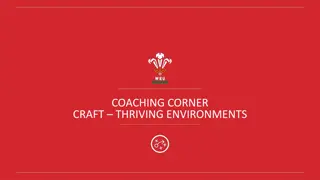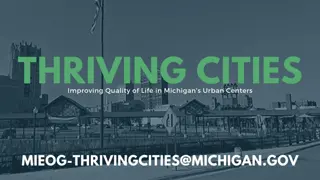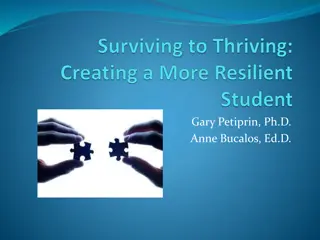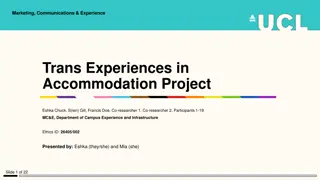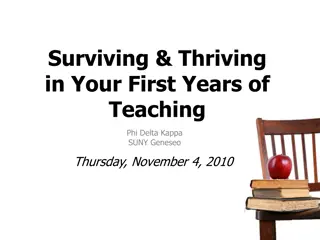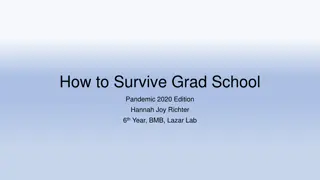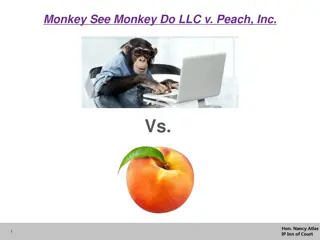Surviving and Thriving in Research: Insights from Dr. Simon Rees
Engage in a comprehensive exploration of research survival strategies with Dr. Simon Rees, Head of Researcher Development at Durham University. Delve into topics such as successful researcher attributes, student/supervisor dynamics, career planning, work-life balance, and more. This session offers a unique opportunity for reflection and discussion to enhance your research journey.
Download Presentation

Please find below an Image/Link to download the presentation.
The content on the website is provided AS IS for your information and personal use only. It may not be sold, licensed, or shared on other websites without obtaining consent from the author. Download presentation by click this link. If you encounter any issues during the download, it is possible that the publisher has removed the file from their server.
E N D
Presentation Transcript
How to Survive in Research Dr Simon Rees Head of Researcher Development Durham University simon.rees@durham.ac.uk 14.30 16.30 2ndApril 2019 This project has received funding from the European Union s Horizon 2020 research and innovation programme under the Marie Sk odowska-Curie grant agreement No. 764850
Session outline Motivations and attributes of a successful researcher Student/Supervisor relationships Mentors and second supervisors Challenges Career planning Horizon scanning Work-life balance / external pressures An opportunity to reflect and discuss
What things would you like to discuss? www.menti.com
Motivations and attributes of a successful researcher
Why are you interested in pursuing a career in research? Or why are you undertaking this research? Discuss with the person next to you and then share reasons with the rest of the group.
Activity: Attributes of a successful researcher.
On the post-it notes, write down an important attribute of a successful researcher. On the flip chart paper, rank the attributes with the most important at the top going down to the least. After 10 mins we will compare with the rest of the group.
Passionate about his or her career. Resilient. Detail-oriented but yet visionary. A creative thinker. Determined. Knowledgeable (an expert). A team player. Self-motivated. An effective communicator. Capable of thinking outside the box . Stull and Ciappo (2014) https://doi.org/10.3945/an.114.007179
student / supervisor relationships
Doctoral Researcher Discipline Department Academic Integration
Problem Areas Discipline Does not fit with conventional ways of being a researcher or scholar in the discipline Research practices not matched with student s strengths Marginalized from the discipline Mismatch Isolation Golde 2005, 681-693 https://www.jstor.org/stable/pdf/3838782.pdf
Problem Areas Department Does not fit with ways of being a student or junior scholar in the department Poor fit of expectations between student and department: inaccurate expectations about nature of graduate life Academically under-prepared Mismatch between student and supervisor Mismatch Isolation Marginalized from the departmental community Structural isolation of student Golde 2005, 681-693
Problem Areas Discipline Filtered Through Department Does not fit with ways of being a researcher or scholar as portrayed by those in the department Student perceives research faculty life is incompatible with personal goals Student perceives job market to be poor Research practices not matched with student s strengths Mismatch Marginalized from the discipline Isolation Golde 2005, 681-693
What are your supervisors responsibilities? What are your responsibilities?
Working with Your Supervisor(s) How would you describe your supervisor s personality and way of supervising? How would you describe your personality and preferred way of working?
Relationship with Supervisor SUPERVISORS DOMINANT -expert who wants things their own way INTERACTIVE -give & take in discussions to agree INDEPENDENT -believes it s the student s project Best OK X X Could have problem s SELF-MOTIVATED -wants minimum interference ENJOYS INTERACTION -as part of the learning process NEEDS DIRECTION -willing to act as assistant to supervisor RESEARCHER
Second supervisors and mentors
What is the role of your second supervisor? What is the role of your mentor?
Mentors A leading scientist at a different SAGEX node, with complementary academic expertise to you. Novel insights: might offer an alternative view on your research project. Might find the relationship develops over time as you gain more experience Be proactive: the mentors are busy academics, so expect to put in effort to develop the relationship.
It is crucial during your training that you develop confidence in your insight and learn to think independently of your mentor (in the wise words of my first mentor, the outcome of the perfect training experience is that you leave the laboratory thinking that your mentor is a good person, but a bit dumb ). (Yewdell, 2008)
Challenges for a scientist.
Early career Established career - Feel you have exhausted the area. Lose interest. Dug so deep in one hole that you can t see over the sides. Feel constrained. - Imposter syndrome. - Lack of confidence. - Less knowledge. - Feel constrained. - - -
Activity: Developing research ideas.
Activity: How would you overcome struggling with coming up with research ideas. In groups of three or four spend 5 minutes discussing strategies to deal with this challenge. What would you do? Where would you go?
Activity: Blue skies thinking In pairs: Imagine a perfect world. In this perfect world what would you like to find out about? Now focus on these thoughts to develop them into something feasible and practical.
Stepping back - decontextualisation Read all the recent articles in your field. Update your place in the field. Read articles / attend seminars outside of your field.
Avoid taking it personally View the feedback constructively Embrace your feelings You are not alone share with others http://makewritelearn.com/rejection-letter
Working collaboratively What part do you play in a team? What are the other parts required for success? What problems do you envisage and how can they be addressed? Discuss in pairs and then share with the rest of the group.
Career planning and horizon scanning.
Activity: Your career plan.
On the sheet provided, complete your own career timeline. What are your aspirations? When do you hope to achieve them?
Activity: Horizon scanning.
In your groups, discuss these questions for five minutes: What opportunities may be developing in your area? How can you increase your awareness of possible opportunities? How can you improve your chances?
Ball, P. (2019) Chemistry World. Vol 16(3)
The importance of work-life balance To maintain your mental health (reduce stress) To ensure your physical health and wellbeing It increases productivity Become a more rounded individual You only get one life!
What we covered today: What are the qualities of a successful scientist? We considered the recognised qualities of a successful scientist such as: resilience, creativity, team player. Challenges of scientific research. We considered some of the challenges of academic research such as: generating ideas and managing rejection. The student / supervisor relationship We considered the nature of the student/supervisor relationship and how best to manage this. Career planning We explored career drivers and future career planning.



















